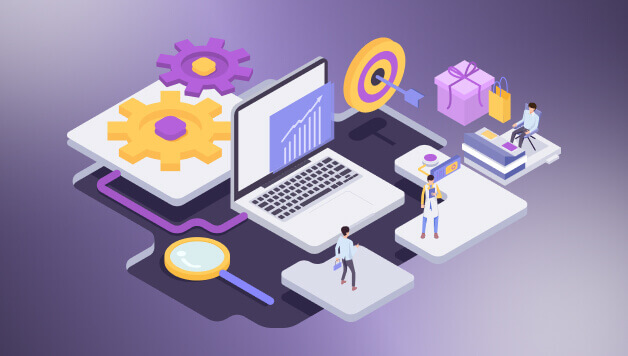Pay-per-click (PPC) advertising is evolving rapidly, and marketers are increasingly leaning toward automated PPC and PPC optimization automation to stay ahead of the competition. Gone are the days when advertisers could manually manage campaigns across platforms and still achieve peak performance. In today’s digital-first landscape, especially in the USA, automation tools empower businesses to maximize ROI, streamline workflows, and make data-driven decisions in real time.
Why Automation Matters in PPC
PPC campaigns involve juggling budgets, targeting, bids, and creative testing. As platforms like Google Ads and Microsoft Advertising become more advanced, so do their algorithms. Marketers who rely solely on manual campaign management often struggle to keep pace with competitors embracing automation.
Automation isn’t about replacing human expertise; it’s about amplifying it. By leveraging PPC automation tools, marketers gain:
- Time savings: Reduce repetitive tasks like adjusting bids or pausing underperforming ads.
- Improved accuracy: Algorithms analyze vast data sets and optimize campaigns faster than humans.
- Better scaling opportunities: Businesses can manage multiple campaigns simultaneously without sacrificing performance.
- Actionable insights: Automation highlights patterns and trends that might otherwise be overlooked.
Manual vs. Automated PPC: What’s the Difference?
Manual PPC management gives advertisers full control over every detail, from setting bids to targeting audiences. While this can be effective for smaller campaigns, it’s not sustainable for brands running large-scale advertising efforts.
Automated PPC, on the other hand, uses machine learning, algorithms, and AI-driven tools to optimize campaigns with minimal manual intervention. This includes features like:
- Automated bidding strategies that adjust based on conversions or clicks.
- Smart audience targeting.
- Dynamic ad creation based on user behavior.
Businesses that shift from manual to automated workflows often see improved efficiency and campaign profitability.
Types of PPC Automation Tools to Consider
Choosing the right PPC automation tools depends on your goals, advertising budget, and the platforms you use. Here are the main types:
1. Bidding Automation Tools
Tools like Google Ads’ Smart Bidding help advertisers automatically adjust bids in real-time, ensuring every ad dollar is maximized.
2. Ad Automation Platforms
Ad automation solutions simplify creative management. They generate personalized ads at scale, dynamically update content, and even test variations automatically.
3. Reporting and Analytics Tools
Automation platforms provide real-time dashboards and custom reports, helping marketers track performance without manual data entry.
4. Rule-Based Automation
This approach lets marketers set parameters (e.g., pause an ad if CTR drops below 2%), combining automation with human oversight.
Key Benefits of PPC Optimization
Implementing PPC optimization provides several advantages:
- Increased ROI: Algorithms allocate budget effectively, prioritizing high-performing campaigns.
- Reduced Human Error: Automated workflows eliminate mistakes caused by manual data entry.
- Faster Campaign Adjustments: Automation adapts instantly to market trends and competition shifts.
- Scalability: Perfect for agencies and enterprises running hundreds of campaigns.
By automating repetitive tasks, marketers can focus on creative strategies, testing new audiences, and driving growth.
How to Choose the Right PPC Automation Tools
With so many automation platforms available, selecting the right one can be overwhelming. Here’s a practical framework:
1. Define Your Goals
Are you trying to boost conversions, lower cost-per-click (CPC), or scale campaigns across platforms? Your goals determine the features you need.
2. Evaluate Integrations
Ensure tools work seamlessly with platforms like Google Ads, Bing, and social media advertising networks.
3. Consider Budget and ROI
Some tools come with advanced features at a higher price point. Make sure the investment aligns with your campaign revenue.
4. Look for AI and Machine Learning Capabilities
AI-driven platforms provide smarter optimizations than rule-based tools, especially for large-scale campaigns.
5. Partner with Experts
Working with agencies offering PPC Management Services ensures proper implementation and ongoing optimization.
The Future of PPC Advertising: Automation First
The shift to automation is inevitable as ad platforms push for AI-driven campaign management. Brands that embrace this shift early gain a competitive edge by:
- Staying agile in a fast-changing ad environment.
- Reducing wasted ad spend.
- Making smarter decisions backed by real-time analytics.
In the coming years, Ad automation will become standard, freeing marketers to focus on strategy and brand storytelling.
Conclusion
The journey from manual to automated PPC isn’t just a trend; it’s a necessity for businesses looking to compete in today’s crowded digital marketplace. By leveraging automation, advertisers can maximize ROI, reduce complexity, and unlock powerful insights. Whether you’re running campaigns in the USA or globally, adopting PPC automation tools will help your brand stay ahead.
Ready to elevate your advertising game? Explore our expert Automated PPC Management Services and discover how automation can drive your next wave of growth. Contact us today to get started!

